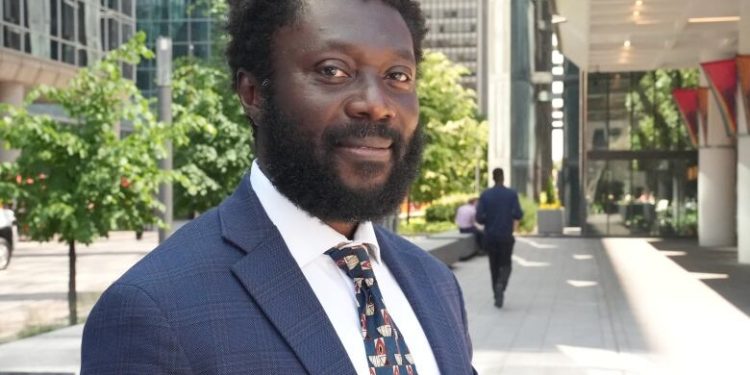Associate Professor at the University of Fraser Valley in Canada, Edward Akuffo, has emphasized Canada’s commitment to Ghana’s development as both nations strengthen their relations amid a shifting global landscape.
Delivering a lecture on Friday at the University of Media, Arts and Communication (UniMAC) campus in Dzorwulu, Accra, he highlighted Ghana’s consistent role in global peacekeeping as a key factor in Canada’s continued support.
The lecture, titled “Africa’s Geopolitical Space and Canada-Africa Relations in a Shifting Global Order,” explored Canada’s evolving role in Africa. The continent is increasingly fostering close cooperation with BRICS, moving beyond traditional partners such as the United Kingdom and the United States.
Established in 2009, BRICS seeks to strengthen economic ties among member states. The bloc has since expanded to ten countries, including key African economies South Africa and Egypt.
Professor Akuffo commended Ghana’s soft power, emphasizing its democratic stability and leadership in global affairs.
“Ghana has contributed to UN peacekeeping operations for a very long time. In fact, it is one of the top 10 contributors to UN peacekeeping operations. Since 1992, Ghana has remained democratic, and although there are economic challenges, it looks like Ghanaians, every four years since 1992, have elected a new government. That is a positive sign of Ghana’s soft power.
“And it is on the basis of this that, for example, the Canadian government continues to support Ghana’s development,” he stated.
He further noted that Canada had selected Ghana as a beneficiary of The Elsie Initiative Fund, which aims to increase the participation of uniformed women in UN peace operations. Ghana’s Armed Forces was among the first to participate in the initiative when it was launched in 2017.
Addressing Canada’s economic ties with Africa, Professor Akuffo revealed that Canada has significant investments in Ghana’s mining sector. However, he expressed concern over the environmental and human security risks posed by illegal mining.
“In fact, perhaps one area that may be of particular interest to the Canadian government, to mining companies, is the issue of illegal mining or what is called in Ghana, Galamsey, because this not only threatens the environment, but it also poses significant danger to human rights and human security,” he explained.
The foreign policy lecture, organized by UniMAC’s International Relations Directorate with support from the university’s Directorate of Research, Innovation and Development (DRID), attracted lecturers, students, and journalists.
Speaking to reporters after the lecture, Dr. Lawrencia Agyepong, Director of the International Relations Directorate, described the engagement as part of a broader collaboration between UniMAC and the University of Fraser Valley.
“University of Fraser Valley is one of the institutions that we are having collaborations with. One of the visions of our current vice-chancellor is to give an international outlook to the University of Media, Arts and Communication, and because of that, we are forming collaborations with institutions across the globe,” Dr. Agyepong said.
Attendees expressed a deeper appreciation of the Canada-Ghana relationship, particularly its impact on student visa processes for Ghanaian students seeking education in Canada.
“I got to learn that because of the relationship Ghana has with Canada, international students from Ghana are favored a lot, so getting a school in Canada is easier,” said Rita Nsiah, a Level 300 student at the university.
“If we continue to have good relations with Canada, then Ghanaian students are really going to benefit from it,” added Frank Obeng, another attendee.
